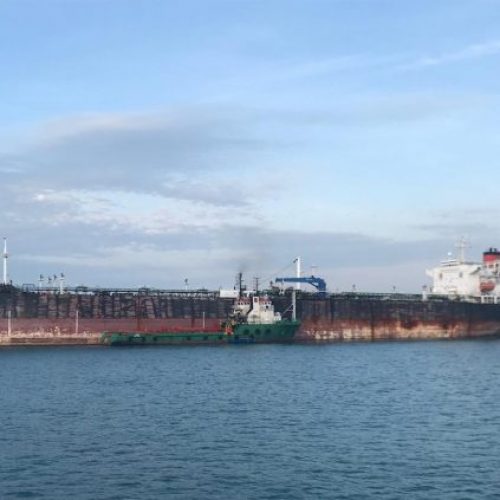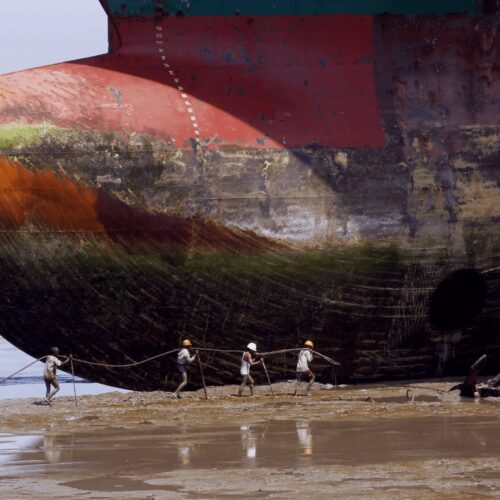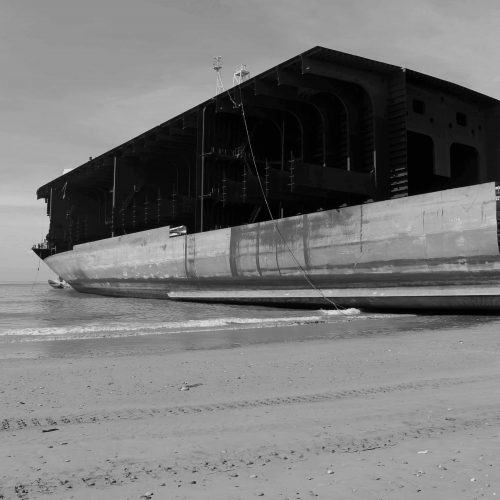Platform News – UN Special Rapporteur concerned about German shipbreaking practices
In a written submission to the German Government, UN Special Rapporteur Baskut Tuncak has expressed serious concerns related to the substandard shipbreaking practices of German ship owners, in particular fatalities and toxic chemical exposure of workers and the local population. The Special Rapporteur on the implications for human rights of the environmentally sound management and disposal of hazardous substances and wastes has raised shipbreaking as one example where German companies face challenges to prevent harm caused by toxic and hazardous substances.
“German ship owners operate the world’s third largest merchant fleet (in terms of number of vessels), and have been linked to fatalities and toxic chemical exposure of workers and local populations including children, who dismantle end-of-life ships in deadly conditions. In 2014, German ship owners sold a record high 95% of their end-of-life tonnage for substandard breaking on the beaches of South Asia,” he writes.
The Special Rapporteur argues that the preparation of the National Action Plan on Business and Human Rights, which is currently being developed under the lead of the German Foreign Office, provides an opportunity to address the challenges related to the protection of human rights in the business sphere. He calls on the Government to ensure that companies reduce the use of hazardous substances and prevent double standards. Moreover, he calls on the German Government “to create the much needed incentives and frameworks for German businesses to foster a positive human rights record”. The Special Rapporteur undertook an official country visit to Germany late in 2015, where he met with key stakeholders on the National Action Plan on Business and Human Rights.

The NGO Shipbreaking Platform calls on the German Government to raise the issue with the shipping community and to address their unacceptable practices in the National Action Plan. In 2015 alone, 23 large commercial vessels from Germany ended up in substandard shipbreaking yards, making German ship owners the fifth biggest dumpers globally. Several German ships were broken down in Bangladesh where environmental pollution, hazardous waste dumping and working conditions are the worst. The Platform has been able to link fatal and severe accidents in Indian and Bangladeshi shipbreaking yards to the demolition of German vessels. The latest severe accident related to a German ship owner concerns Hamburg-based ship owner Neu Seeschiffahrt GmbH who sold its end-of-life ore carrier RENATE N (IMO 9006851) to Seiko Steel / Darussalam Enterprise with the help of cash buyer Wirana this February. Mominul, an only 20 years old worker, was severely injured when he fell from great heights working without adequate protection gear. He will remain disabled for the rest of his life. The yard management has not paid for the necessary operation only available in a specialised hospital.
Apart from Germany’s largest ship owner Hapag Lloyd, which has a progressive ship recycling policy, the rest of the ship-owning community has remained shamefully inactive with regards to finding sustainable and safe solutions to the issue.
More information from the Business & Human Rights Resource Centre.
Related news

Press Release – NGOs urge Bangladesh authorities to halt the import of a highly toxic offshore unit that illegally departed from Indonesia
The tanker has more than 1500 tons of hazardous waste onboard.
... Read More
Platform News – Worker killed in yard breaking German-owned container ship “Viktoria Wulff”
On 4 December, worker Shah Jahan was killed on the spot at Arefin shipbreaking yard in Chittagong, Bangladesh, where German container ship “Viktoria Wulff” (IMO 9252101) is… Read More

Platform News – No more dead workers!
The Berge Stahl, one of the world’s largest iron ore bulkers, made its last visit at the Port of Rotterdam last week. The NGO Shipbreaking Platform… Read More

Where ships go to die – Winner of the Public Eye Investigation Award
Decommissioned deep-sea vessels are floating toxic waste. Their disposal is laborious and costly, and regarded as a menace by those who want to protect both the workers… Read More

Press Release – Sale of asbestos-laden aircraft carrier São Paulo raises concerns
The NGO Shipbreaking Platform, Basel Action Network (BAN), BAN Asbestos France, International Ban Asbestos Secretariat (IBAS), İstanbul Isig Meclisi and Brazilian ABREA have alerted the Turkish Ministry… Read More

Platform publishes South Asia Quarterly Update #12
128 ships were sold for scrap to the South Asian beaches in the first quarter of 2017 [1]. Eleven workers were killed and at least four additional… Read More

Press Release – Pakistani workers poisoned during scrapping of infamous mercury-laden tanker
The tanker J. NAT has been beached on the shipbreaking shores of Gadani, Pakistan despite clear warnings by Interpol and international civil society groups that the vessel contains high levels of toxics.
... Read More
